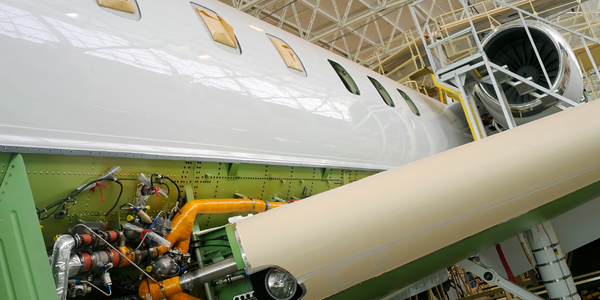IMR & Renishaw Streamline the Additive Manufacturing of Spinal Implants
Customer Company Size
Large Corporate
Region
- Europe
Country
- United Kingdom
Product
- nTopology
- Renishaw’s build preparation software
Tech Stack
- Additive Manufacturing
- Generative Design
Implementation Scale
- Enterprise-wide Deployment
Impact Metrics
- Productivity Improvements
- Innovation Output
- Customer Satisfaction
Technology Category
- Other - Additive Manufacturing
- Analytics & Modeling - Generative AI
Applicable Industries
- Aerospace
- Automotive
Applicable Functions
- Product Research & Development
- Quality Assurance
Use Cases
- Additive Manufacturing
Services
- Software Design & Engineering Services
- System Integration
About The Customer
IMR and Renishaw collaborated to leverage the design optimization capabilities of nTopology for developing unique and lightweight spinal implants. IMR, known for its expertise in medical device manufacturing, partnered with Renishaw, a leader in additive manufacturing technology, to address the complex requirements of spinal implants. The collaboration aimed to create a device that could help restore intervertebral height in patients suffering from various spinal conditions. The project focused on developing an additively manufactured spinal implant with a porous lattice that promotes osseointegration and vascularization, matching the mechanical properties of bone. The partnership between IMR and Renishaw highlights their commitment to innovation and excellence in the medical device industry.
The Challenge
The project aimed to create a spinal implant that could restore intervertebral height in patients suffering from various spinal conditions such as degenerative intervertebral disc disease, vertebral fusion, spondylolisthesis, herniated disc, osteoporosis, and spinal stenosis. The challenge was to develop an implant with a porous lattice that promotes osseointegration and vascularization while matching the mechanical properties of bone. Additionally, the design process needed to be efficient and error-free to reduce time-to-market and ensure high-quality outcomes.
The Solution
IMR utilized nTopology to control all design aspects of the spinal implant throughout the development process. The engineering team was able to vary design parameters in a spatially precise manner and use physical fields, such as pressure and strain across the implant volume, to optimize the design. This allowed them to arrive at an optimum osseointegration lattice pore size. IMR developed seven concepts that went through the complete design cycle, with multiple iterations in each cycle. nTopology enabled the team to expedite the design process by allowing quick and effective adjustments to design parameters. Additionally, the engineers sliced their designs in nTopology and exported the data directly to the native file format used by Renishaw’s build preparation software. This streamlined the transition from design to manufacturing, reducing the risk of errors and inconsistencies.
Operational Impact
Quantitative Benefit

Case Study missing?
Start adding your own!
Register with your work email and create a new case study profile for your business.
Related Case Studies.

Case Study
Airbus Soars with Wearable Technology
Building an Airbus aircraft involves complex manufacturing processes consisting of thousands of moving parts. Speed and accuracy are critical to business and competitive advantage. Improvements in both would have high impact on Airbus’ bottom line. Airbus wanted to help operators reduce the complexity of assembling cabin seats and decrease the time required to complete this task.

Case Study
Aircraft Predictive Maintenance and Workflow Optimization
First, aircraft manufacturer have trouble monitoring the health of aircraft systems with health prognostics and deliver predictive maintenance insights. Second, aircraft manufacturer wants a solution that can provide an in-context advisory and align job assignments to match technician experience and expertise.

Case Study
Integral Plant Maintenance
Mercedes-Benz and his partner GAZ chose Siemens to be its maintenance partner at a new engine plant in Yaroslavl, Russia. The new plant offers a capacity to manufacture diesel engines for the Russian market, for locally produced Sprinter Classic. In addition to engines for the local market, the Yaroslavl plant will also produce spare parts. Mercedes-Benz Russia and his partner needed a service partner in order to ensure the operation of these lines in a maintenance partnership arrangement. The challenges included coordinating the entire maintenance management operation, in particular inspections, corrective and predictive maintenance activities, and the optimizing spare parts management. Siemens developed a customized maintenance solution that includes all electronic and mechanical maintenance activities (Integral Plant Maintenance).

Case Study
Aerospace & Defense Case Study Airbus
For the development of its new wide-body aircraft, Airbus needed to ensure quality and consistency across all internal and external stakeholders. Airbus had many challenges including a very aggressive development schedule and the need to ramp up production quickly to satisfy their delivery commitments. The lack of communication extended design time and introduced errors that drove up costs.




